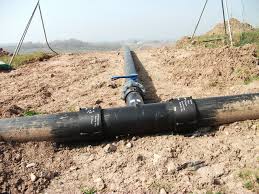-
US energy business sales highlight differing views on future of energy landscape
Date posted:
-
-
-
Post Author
Patrick LaveryCombustion Industry News Editor
-
-

The Financial Times has published an interesting report looking at the strategic sales and purchases of assets by energy industry players in the US in recent times, which at least partly reflect their expectations for the future of the energy landscape.
Pipeline owner Magellan Midstream Partners merged with rival Oneok in mid-September, with Magellan chief executive Aaron Milford identifying that crude oil and refined petroleum products (which it tends to focus on) had fewer growth opportunities than natural gas, which Oneok is more involved in. With increasing sales of electric vehicles in the US as part of a broader rise in electrification, and long-term demand for natural gas around the world seeming to be fairly secure, there is apparent strategic prudence in the move. As Energy Income Partners, one of the investors in Magellan pointed out, however, Magellan’s strategy “completely reversed its view of industry prospects” from last year. This is perhaps a sign of the rapidity with which the sector is changing.
Meanwhile, TC Energy, another pipeline operator that was one of the main proponents of the now abandoned Keystone XL crude oil project, is also shifting to natural gas, spinning off its oil transportation business. Canadian pipeline company Enbridge’s US$14 billion purchase of the natural gas distribution business of US utility Dominion Energy in September is another in the series of moves towards natural gas from oil – but in this case it will provide Dominion with capital to invest in renewables.
S&P Global analyst Raoul LeBlanc told the Financial Times that utilities “are saying: well, we think renewables are really going to work well and . . . we want to be front and centre…the oil guys and the people who have been in the gas business are saying: gas has a lot going for it and it is the fuel that will become important if the road to renewables doesn’t work”.
